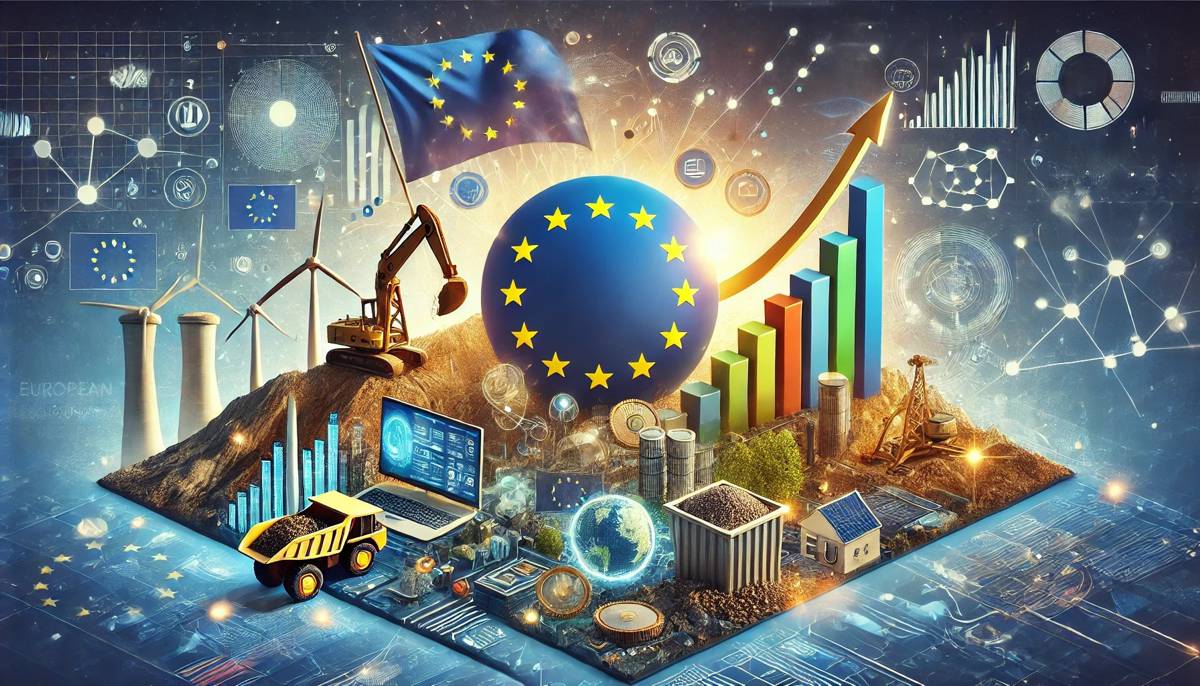EBRD and EU Mobilise €100 Million for Strategic Raw Materials Exploration
In a significant stride towards securing essential resources for Europe’s future, the European Bank for Reconstruction and Development (EBRD) and the European Union (EU) have teamed up to launch a ground-breaking joint facility.
This initiative, aimed at bolstering the exploration of critical and strategic raw materials, is poised to mobilise up to €100 million in investments.
These investments are crucial for the EU’s digital and green transition, aligning with its ambitious environmental and social standards.
Mobilising Investments for a Sustainable Future
The joint facility between the EBRD and the EU underscores a strategic effort to mitigate potential supply-chain disruptions in industrial sectors. By developing sustainable projects for critical raw materials, the EU aims to ensure a steady supply of essential resources. This initiative supports the objectives of both the EU’s Critical Raw Materials Act and the REPowerEU Plan, which are pivotal to the region’s sustainable development.
The EBRD has committed €25 million to this venture, a sum that will be matched by the EU’s contribution from the Horizon Europe Programme under the InvestEU umbrella. This collaborative effort is designed to mobilise an additional €50 million, bringing the total investment potential to €100 million.
Leveraging Expertise in Mining
Building on its extensive experience in financing mining projects, the EBRD will facilitate early-stage equity investments in operations within EU Member States where the Bank operates, including Bulgaria, Croatia, Czechia, Estonia, Greece, Hungary, Latvia, Lithuania, Poland, Romania, the Slovak Republic, and Slovenia. Additionally, the initiative extends to EBRD economies outside the EU covered by the Horizon Europe programme, such as Albania, Armenia, Bosnia and Herzegovina, Georgia, Kosovo, Moldova, Montenegro, North Macedonia, Serbia, Tunisia, Türkiye, and Ukraine.
Given that mining exploration activities do not yet generate revenue, equity investment emerges as the most suitable support instrument. The EBRD anticipates investing in 5-10 junior mining companies—small and medium-sized enterprises, medium-sized enterprises, or small mid-caps—engaged in critical raw material exploration in eligible countries.
Aligning with Green and Digital Transition Goals
The new facility is a testament to the EBRD’s commitment to supporting the exploration and production of metals and minerals required for the green energy transition and digitalisation. This initiative aligns with one of the key priorities of the EBRD’s Mining Sector Strategy, which focuses on fostering responsible and sustainable mining practices.
To ensure that all funded activities adhere to the highest standards, the EBRD will apply its rigorous Paris Agreement alignment and Environmental and Social Policy screening to all projects. This stringent oversight will guarantee that exploration activities are conducted responsibly, maintaining high climate, governance, environmental, and social impact standards.
EBRD’s Junior Mining Framework
This joint facility is a crucial component of the EBRD’s recently approved Junior Mining Framework, which is worth €150 million.
The framework aims to provide equity and quasi-equity investments in early-stage mining companies, reinforcing the bank’s strategic focus on sustainable and responsible mining.
The Significance of Critical Raw Materials
Critical raw materials, such as lithium, cobalt, and rare earth elements, are indispensable for manufacturing high-tech products and renewable energy technologies.
These materials are the backbone of batteries for electric vehicles, wind turbines, and various digital technologies essential for modern economies.
The EU’s Strategic Raw Materials Initiative
The EU’s Critical Raw Materials Act and the REPowerEU Plan highlight the region’s proactive stance in securing these valuable resources.
By prioritising the development of sustainable projects, the EU aims to reduce dependency on external sources and enhance the resilience of its supply chains.
EBRD’s Role in Facilitating Investments
The EBRD’s involvement is pivotal in bridging the funding gap for junior mining companies. By providing equity investments, the bank enables these companies to undertake the necessary exploration activities, which are often capital-intensive and risky.
This support not only fosters the growth of the mining sector but also contributes to the broader goals of economic development and sustainability.
Ensuring Environmental and Social Responsibility
One of the hallmarks of the EBRD’s investment strategy is its commitment to environmental and social responsibility. All projects funded under the joint facility will undergo stringent screening processes to ensure compliance with the EBRD’s Environmental and Social Policy.
This ensures that mining activities do not compromise ecological integrity or social well-being, aligning with global sustainability goals.
A milestone in securing Europe’s Future
The collaboration between the EBRD and the EU marks a significant milestone in securing Europe’s future through sustainable resource management. By mobilising up to €100 million in investments for the exploration of critical raw materials, this joint facility underscores the importance of strategic foresight and responsible investment.
As the world pivots towards a green and digital future, initiatives like these are crucial in ensuring that the necessary resources are available, while maintaining the highest standards of environmental and social responsibility.





























